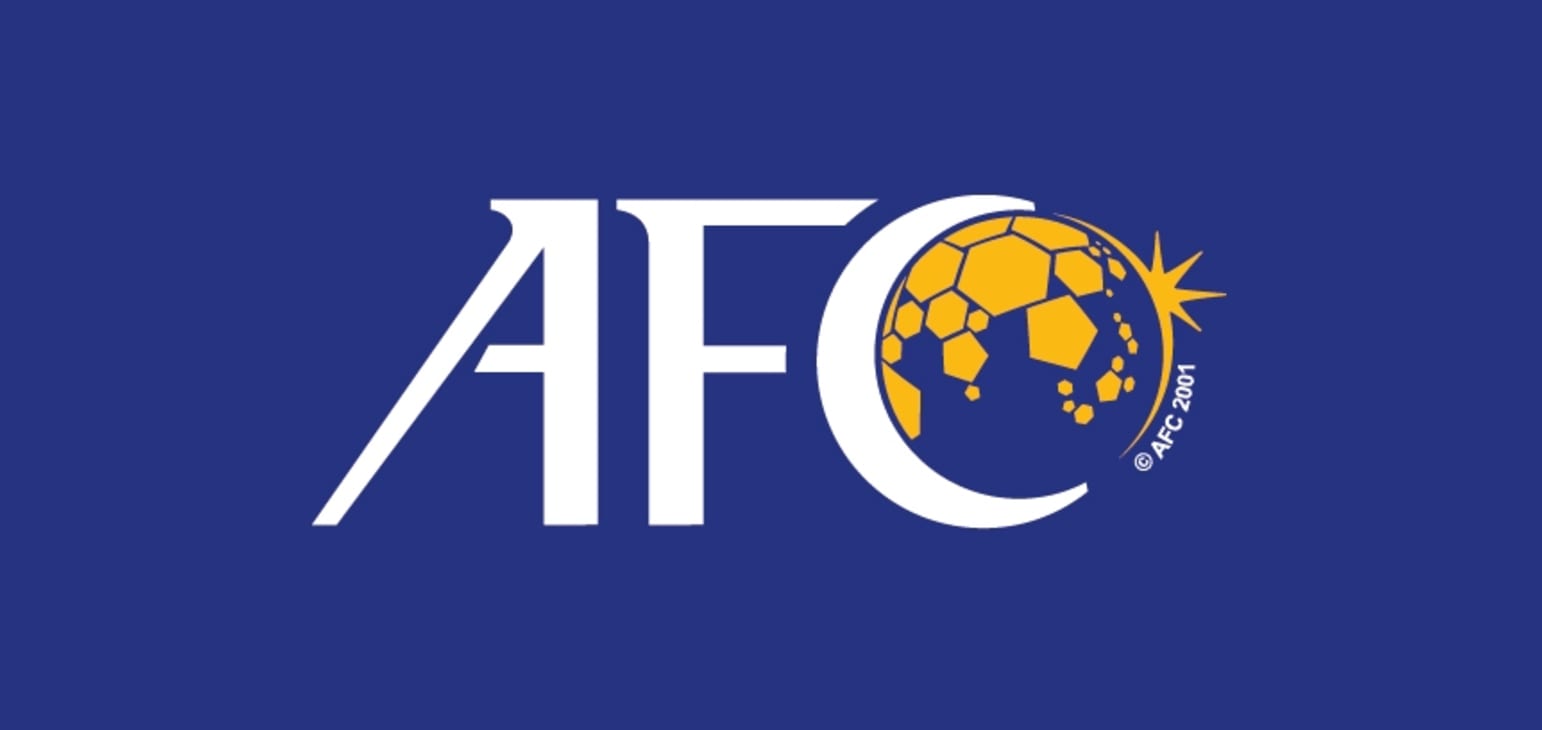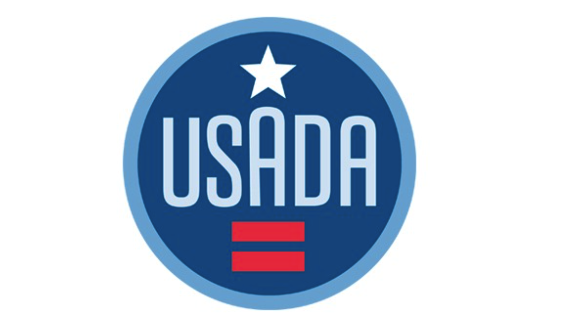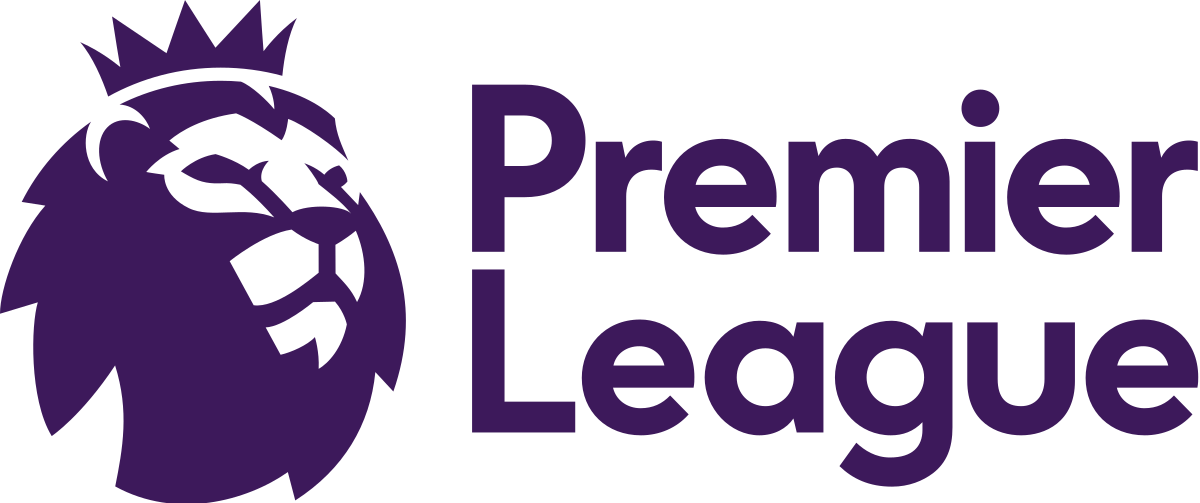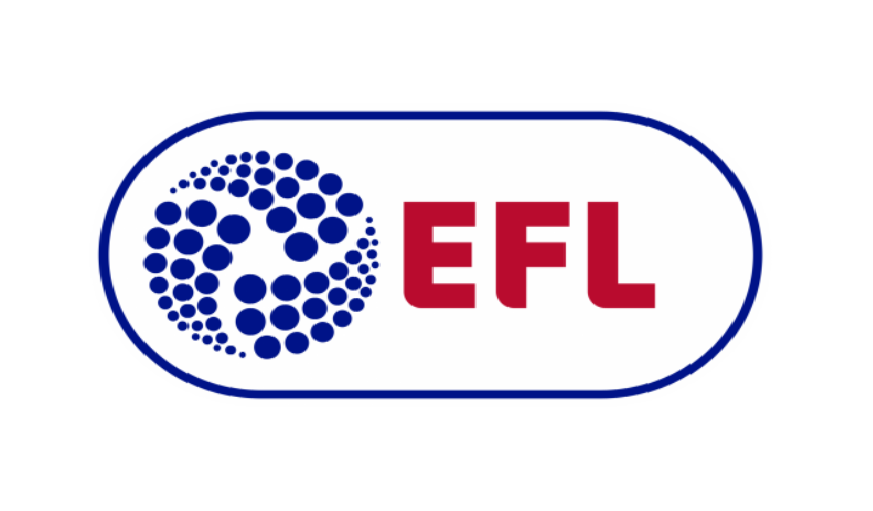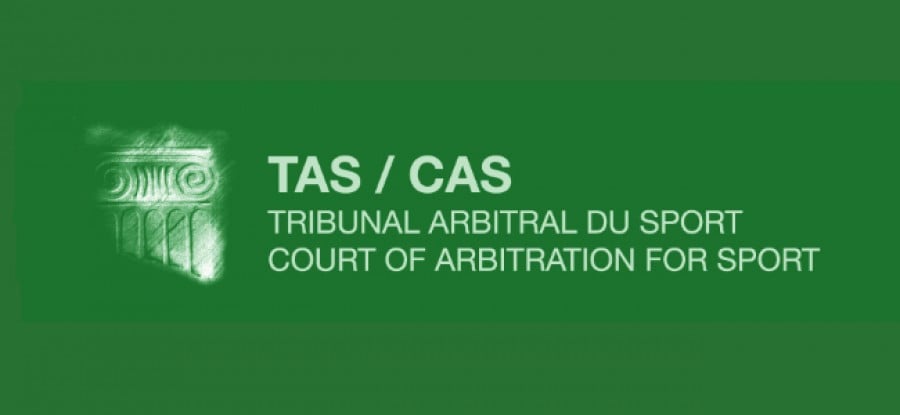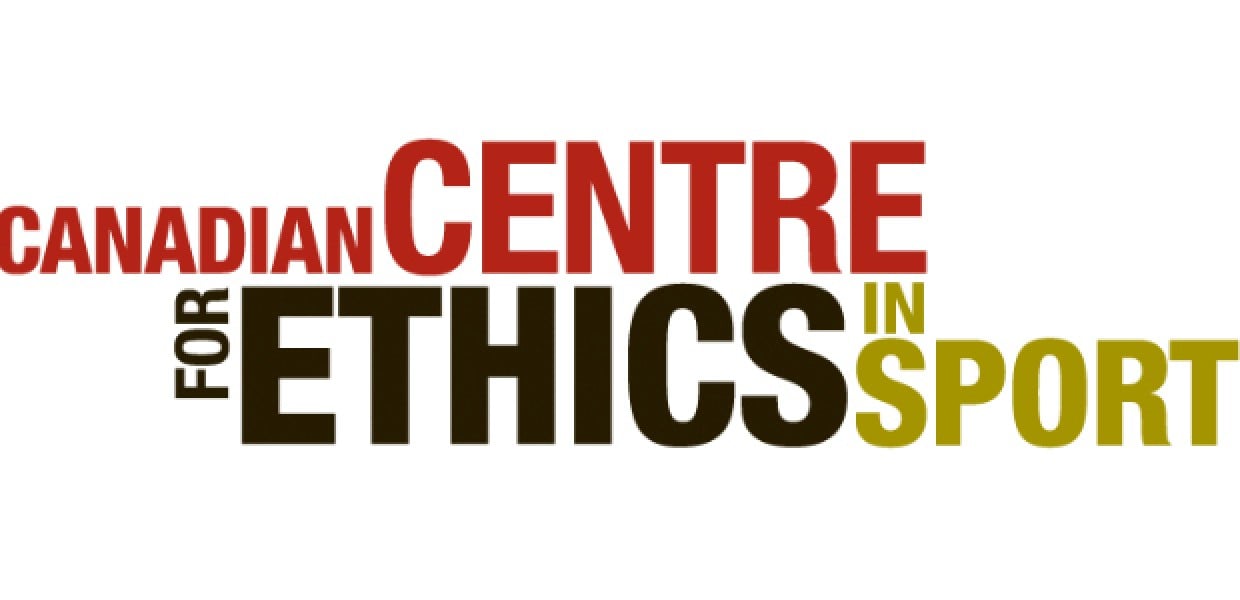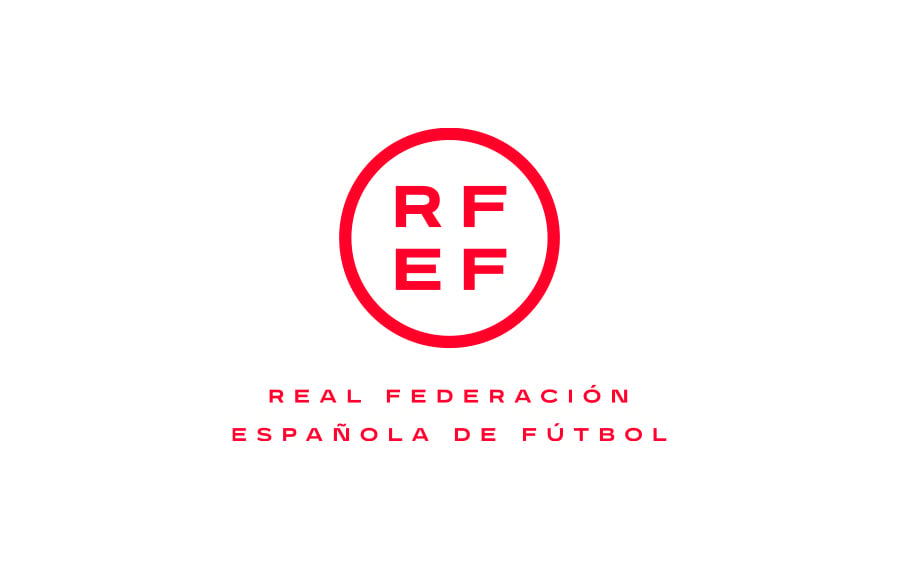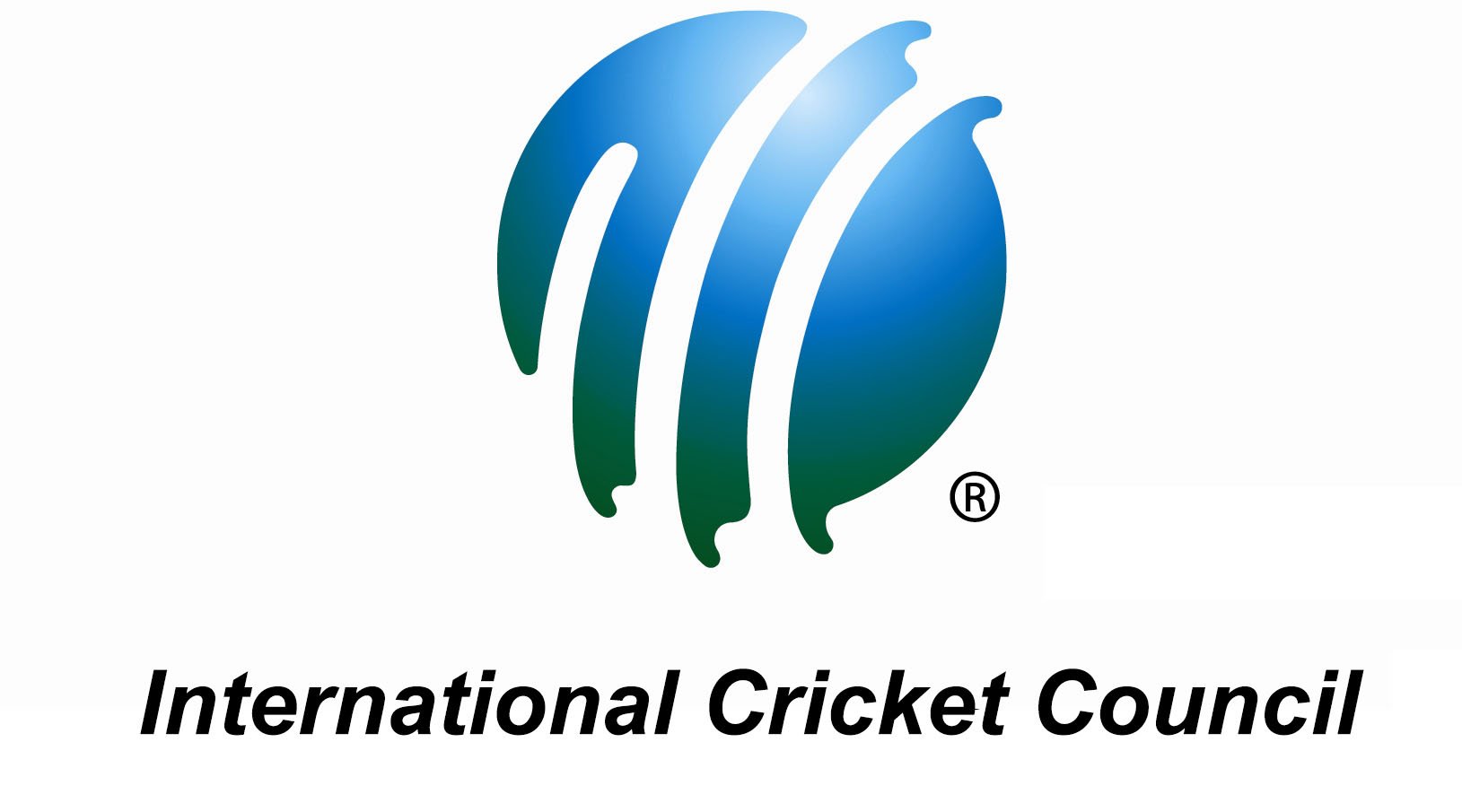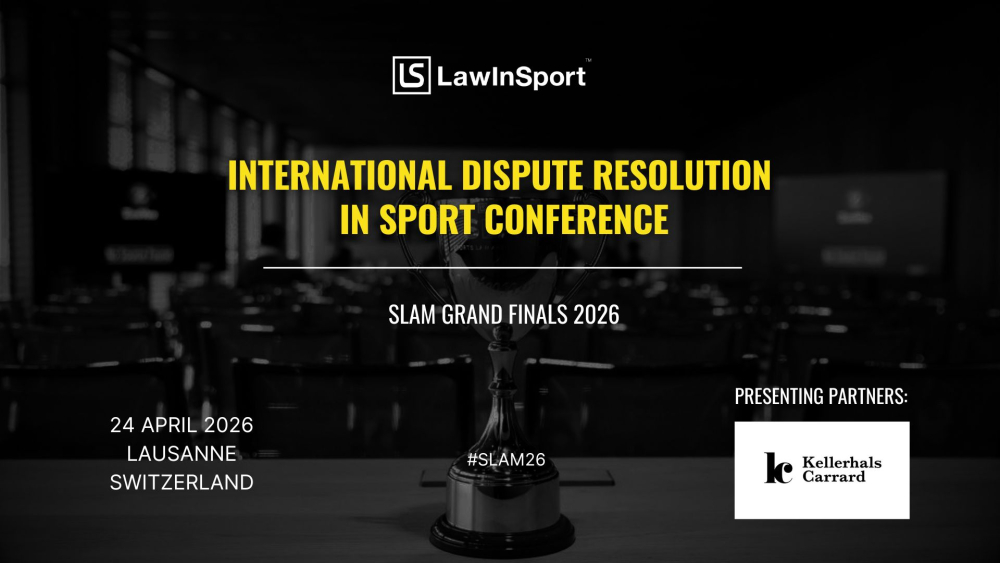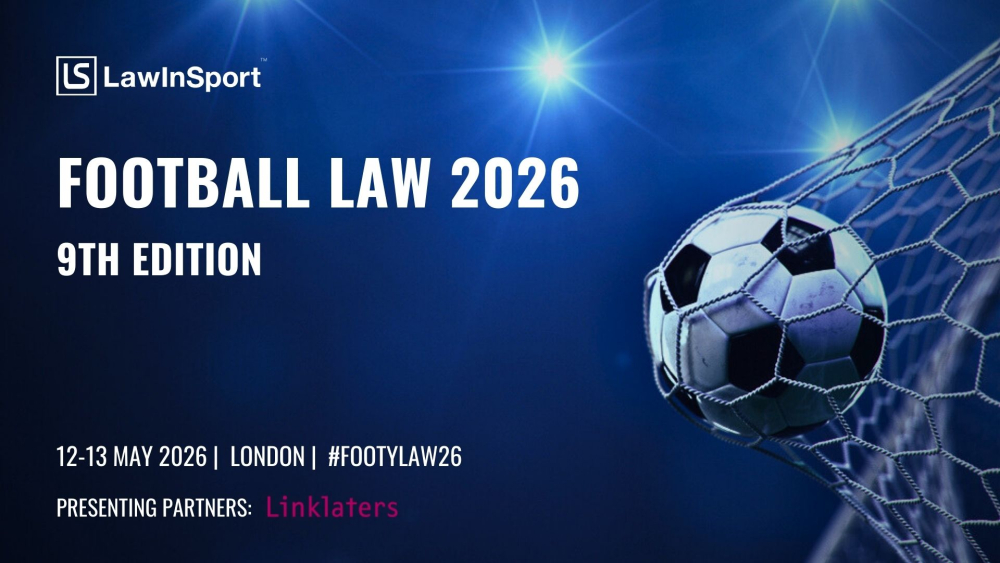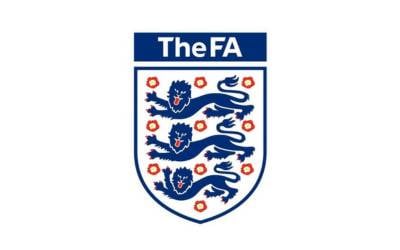
Swansea City’s player liaison officer has been suspended from all football and football-related activity for 12 months and fined £1,500 following misconduct in relation to betting.
The FA alleged that Huw Lake had placed 2,476 bets on football matches between 03 April 2018 and 24 September 2023, and he subsequently admitted to this charge.
An independent Regulatory Commission imposed a 12-month ban from all football and football-related activity, with three months to be served immediately and the remainder to be suspended until the end of the 2024/25 season, and £1,500 fine.
The FA appealed against the independent Regulatory Commission’s decision on the grounds that it came to a decision which no reasonable such body could have come; and imposed a penalty, award or sanction that was so unduly lenient as to be unreasonable.
An independent Appeal Board found that the decision to suspend nine months of the suspension was unreasonable and/or so unduly lenient as to be unreasonable, and it substituted a 12-month suspension to be served in its entirety from 25 March 2024.
The written reasons for both the independent Appeal Board and Regulatory Commission’s decisions can be read below.
The FA v Huw Lake - Appeal Board - 21 May 2024
The FA v Huw Lake - 25 March 2024
As Asian club football prepares to enter a new era, the Asian Football Confederation (AFC) has reaffirmed its determination to maintain the highest officiating standards with the implementation of the Video Assistant Referee (VAR) system across its revamped three-tier club structure as well as the inaugural AFC Women’s Champions League™ for the 2024/25 season.
Befitting the status of the newly introduced AFC Champions League Elite™, which will see the Continent’s top 24 teams battle for glory, the tournament will implement VAR from the League Stage, which kicks off this September.
The inaugural edition of the landmark AFC Women’s Champions League™, which kicks off in October, will see the VAR system made available in the Semi-finals and Final, underscoring the Confederation’s commitment to supporting and developing women’s football on the Continent.
Meanwhile, VAR support for match officials in the AFC Champions League Two™ will be available from the Knockout Stage onwards. The competition, comprising 32 teams, is set to commence in September.
For the AFC Challenge League™, which will feature 20 teams, the technology will come into play in the all-important Final in May 2025.
Moreover, an AFC VAR Information Officer (VIO) Workshop is also slated to take place in the upcoming months to ensure the VIOs from the various AFC Member Associations are kept abreast of the latest developments in VAR technology.
The adjudicatory chamber of the independent Ethics Committee has sanctioned five individuals as a result of their conduct whilst serving as officials of the Bangladesh Football Federation (BFF) as follows:
-
Abu Nayeem Shohag, former General Secretary of the BFF, has been banned from taking part in any football-related activity for a duration of three years and ordered to pay a fine amounting to CHF 20,000.
-
Abu Hossain, former Chief Financial Officer of the BFF, and Mizanur Rahman, former Manager – Operations of the BFF, have both been banned from taking part in any football-related activity for a duration of two years and ordered to pay individual fines amounting to CHF 10,000.
-
Abdus Salam Murshedy, Senior Vice-President of the BFF and chairman of the BFF Finance Committee, has been ordered to pay a fine amounting to CHF 10,000.
-
Imrul Hasan Sharif, Procurement and Store Officer of the BFF, has been ordered to undergo compliance training provided by FIFA and issued with a warning with respect to his future conduct.
The decisions were taken following separate hearings and upon careful analysis, in each of the applicable proceedings, of both the evidence provided before the adjudicatory chamber and the evidence collected during the investigations conducted by the investigatory chamber. The adjudicatory chamber was comfortably satisfied that the above individuals were involved with and/or participated in a number of transactions supported with false and/or falsified documentation, which were paid, or expected to be paid, with FIFA funds. As such, the individuals breached the following provisions of the FIFA Code of Ethics:
-
Abu Nayeem Shohag, Abu Hossain and Mizanur Rahman: article 14 (General duties), article 16 (Duty of loyalty) and article 25 (Forgery and falsification)
-
Abdus Salam Murshedy and Imrul Hasan Sharif: article 14 (General duties)
The individual grounds of the decisions were notified to the respective parties and published on FIFA.com today, the date on which the sanctions come into force.

West Ham United’s Lucas Paqueta has been charged with misconduct in relation to alleged breaches of FA Rules E5 and F3.
The player has been charged with four breaches of FA Rule E5.1 in relation to his conduct in the club’s Premier League fixtures against Leicester City on 12 November 2022; Aston Villa on 12 March 2023; Leeds United on 21 May 2023; and AFC Bournemouth on 12 August 2023.
It’s alleged that he directly sought to influence the progress, conduct, or any other aspect of, or occurrence in these matches by intentionally seeking to receive a card from the referee for the improper purpose of affecting the betting market in order for one or more persons to profit from betting.
Lucas Paqueta has also been charged with two breaches of FA Rule F3 in respect of alleged failures to comply pursuant to FA Rule F2.
The player has until 03 June 2024 to provide a response to these charges subject to any request for an extension to this deadline.
The FA will be making no further comment until the conclusion of this case.
Published Friday, 17 May 2024.
Published Wednesday, 15 May 2024.
USADA announced today that Breezy Johnson, of Victor, Idaho, an athlete in the sport of skiing, has accepted a 14-month sanction for committing three Whereabouts Failures within a 12-month period.
At the time of the Whereabouts Failures, Johnson, 28, was included in the USADA Registered Testing Pool (RTP), which consists of a select group of elite athletes subject to certain Whereabouts requirements in order to be located for out-of-competition testing. Within a 12-month period, Johnson accrued three Whereabouts Failures: the first on October 29, 2022, the second on June 13, 2023, and the third on October 10, 2023.
The accumulation of three Whereabouts Failures within a 12-month period constitutes a rule violation under the USADA Protocol for Olympic and Paralympic Movement Testing, the United States Olympic and Paralympic Committee National Anti-Doping Policy, and the International Ski and Snowboard Federation Anti-Doping Rules, all of which have adopted the World Anti-Doping Code. The period of ineligibility for Whereabouts rule violations ranges from one year to two years depending on the athlete’s degree of fault. In this case, USADA determined that a 14-month period of ineligibility was appropriate because Johnson’s degree of fault was relatively low given the circumstances of the case.
Johnson’s 14-month period of ineligibility began on October 10, 2023, the date of her third Whereabouts Failure. In addition, Johnson has been disqualified from all competitive results achieved on and subsequent to October 10, 2023, including forfeiture of any medals, points, and prizes.
Accurate Whereabouts information is crucial for effective out-of-competition testing, which helps deter and detect doping by enabling no-notice sample collection. This is especially important because some prohibited substances have limited detection windows. In an effort to aid athletes, as well as support team members such as parents and coaches, in understanding the rules applicable to them, USADA provides comprehensive instruction on its website on the testing process and prohibited substances, how to file and update athlete Whereabouts, how to obtain permission to use a necessary medication, and the risks and dangers of taking supplements, as well as performance-enhancing and recreational drugs.
An independent Appeal Board has upheld the decision of a Commission to deduct four points from Nottingham Forest following an admitted breach of the Premier League’s Profitability and Sustainability Rules (PSR).
The PSR sanction applied to the assessment period ending Season 2022/23 and was appealed by the club on two grounds. The club argued that the independent Commission committed an error in not treating its sale of a high-profile player shortly after the assessment period as a mitigating factor, and that it committed a further error in electing not to suspend some or all of the points deduction it imposed. Each of these grounds was rejected by the Appeal Board, which found the independent Commission was entitled to immediately impose the sanction it did. The four-point deduction will therefore remain in place.
Click here to read the independent Appeal Board’s full written reasons.
Appeal Boards are independent of the Premier League and member clubs. The Appeal Board in this case comprised of the Rt Hon Lord Dyson (chair), David Phillps KC and Daniel Alexander KC, each of whom was appointed by the independent Chair of the Premier League Judicial Panel.
An independent Regulatory Commission has sanctioned Newcastle United’s Sandro Tonali for misconduct in relation to The FA’s Betting Rules.
The FA charged the midfielder with 50 breaches of FA Rule E8 for placing bets on football matches between 12 August 2023 and 12 October 2023, and he admitted to this.
The independent Regulatory Commission imposed a two-month suspension from all football and football-related activity, which is suspended until the end of the 2024/25 season pending any further breaches of The FA’s Betting Rules, as well as a £20,000 fine and warning.
The independent Regulatory Commission’s written reasons for these sanctions can be read in full here.
The Premier League and Fulham FC have entered into a sanction agreement following the Club’s accepted breaches of the Premier League Rules in relation to player registrations.
The Club will face a six-month ban (suspended for one year) from registering any Academy players currently or previously registered with another club and will pay a £75,000 fine.
The suspended registrations ban commenced on 15 April 2024.
Click here to read the sanction agreement. As required by the Premier League Rules, the sanction agreement has been ratified by three members of the Independent Judicial Panel.
Published Tuesday, 23 April 2024.
The EFL wishes to clarify further its position in respect of yesterday’s Premier League and Football Association bi-lateral announcement over the removal of FA Cup replays and the role of the League’s representatives on the Professional Game Board (PGB).
The agreement which now sees the abolition of replays from the competition format was agreed solely between the Premier League and FA. Ahead of the deal being announced there was no agreement with the EFL nor was there any formal consultation with EFL Clubs as members of the FA and participants in the competition.
In September 2023, the EFL did initially discuss with Clubs potential changes to the FA Cup format but only as part of a wider and more fundamental change to financial distributions. As is now clear, there has been no movement in this area since September.
This latest agreement between the Premier League and the FA, in the absence of financial reform, is just a further example of how the EFL and its Clubs are being marginalised in favour of others further up the pyramid and that only serves to threaten the future of the English game.
The EFL today calls on both the Premier League and the FA, as the Governing body, to re-evaluate their approach to their footballing partnership with the EFL and engage more collaboratively on issues directly affecting our Clubs.
A separate issue is the role of the EFL representatives on the Professional Game Board (PGB) in agreeing to the 2024/25 overall fixture calendar. PGB is there to make technical decisions across the game as opposed to key policy decisions such as competition changes or formats.
Any decisions taken on the calendar involving EFL representatives are in no way an endorsement of the joint deal agreed between the FA and Premier League that imposes changes to the FA Cup competition format in isolation.
As part of the discussions the EFL representatives did challenge the position and were told that Clubs would be comfortable with no replays. They were effectively advised that, as a result, of it being an FA competition, the fixture list needed to be agreed as presented. It is also important to note that this matter was not discussed by the FA Cup committee, a separate group that oversees the competition across the professional and national game.
Published Thursday, 18 April 2024.
At a Premier League Shareholders’ meeting today, clubs unanimously agreed to the introduction of Semi-Automated Offside Technology.
The new system will be used for the first time in the Premier League next season, and it is anticipated the technology will be ready to be introduced after one of the autumn international breaks.
The technology will provide quicker and consistent placement of the virtual offside line, based on optical player tracking, and will produce high-quality broadcast graphics to ensure an enhanced in-stadium and broadcast experience for supporters.
An independent Disciplinary Commission (IDC) has determined that Sheffield United Football Club are to be deducted two points at the start of the next season the Club is in the EFL’s jurisdiction, with a further two points suspended until the end of that same season.
The sanction relates to the 2022/23 season, when the Club defaulted on a number of payments to other Clubs. These defaults cumulatively were in excess of 550 days.
The suspended points deduction will be activated if the Club defaults on any payment due to another Club under a transfer or compensation agreement for more than five business days from the due date for payment.
The Club has agreed to pay the EFL’s costs in the sum of £310,455.
The IDC’s Decision and written reasons are available to view on EFL.com.
An independent Commission has given an immediate two-point deduction to Everton FC for a breach of the Premier League’s Profitability and Sustainability Rules (PSRs) for the period ending Season 2022/23.
Over a three-day hearing last month, the independent Commission heard evidence and arguments from the club in respect of a range of potential mitigating factors for its admitted breach of £16.6million, including the impact of its two successive PSR charges. Having done so, the Commission determined the appropriate sanction to be a two-point deduction, taking effect immediately.
The independent Commission reaffirmed the principle that any breach of the PSRs is significant and justifies, indeed requires, a sporting sanction.
Click here to read the independent Commission’s full written reasons.
Commissions are independent of the Premier League and member clubs. The members of the Commission were appointed by the independent Chair of the Premier League Judicial Panel.
Published Friday, 05 April 2024.
The Court of Arbitration for Sport (CAS) has dismissed the appeal filed by the International Boxing Association (IBA) against the decision taken by the IOC Session on 22 June 2023 withdrawing the IOC’s recognition of the IBA as the IF for the sport of boxing. The IOC Session took its decision based on the recommendation issued by the IOC Executive Board (IOC EB) on 7 June 2023 following a long process, initiated shortly after the Olympic Games Rio 2016, during which the IOC requested the IBA to undertake various measures to address serious concerns related to its governance and financial stability. Such process included the implementation of a roadmap, recommended by the IOC to the IBA in December 2021, in order to demonstrate to the satisfaction of the IOC EB that the IBA had successfully addressed ongoing areas of concerns ahead of the IOC Session in 2023 where the inclusion of boxing in the Olympic programme would be discussed.
On 27 June 2023, the IBA filed an appeal at the Court of Arbitration for Sport (CAS) against the
decision of the IOC Session and sought to have it “annulled and set aside in full”. The CAS Panel
constituted to handle this matter heard the parties and their legal representatives on 16 November 2023 at the CAS Headquarters in Lausanne/CH.
In its final award, the CAS Panel noted that, as at the date of the Appealed Decision, the IBA had not complied with the conditions set down by the IOC for recognition, namely:
a. The IBA had not increased its financial transparency and sustainability including through
diversification of revenues.
b. The IBA had not changed its process relating to referees and judges to ensure its integrity,
including a monitoring period for IBA’s own competitions ahead of the Olympic Games Paris
2024.
c. The IBA had not ensured the full and effective implementation of all the measures proposed
by the “Governance Reform Group” established by the IOC, including a change of culture.
As a consequence, the Panel determined that these three elements justified the IOC Session’s decision
to withdraw recognition of the IBA and emphasized that the IOC’s right to control the circumstances in and the conditions on which it confers recognition outweighed the IBA’s personality rights.
The full reasoned award has been notified to the parties and will be published by CAS unless the parties request confidentiality.
An independent Regulatory Commission has sanctioned Nottingham Forest and Steven Reid following their Premier League game against Liverpool on Saturday 2 March.
The club admitted that it failed to ensure its players and technical area occupants did not behave in an improper way after the final whistle. The independent Regulatory Commission imposed a £75,000 fine following a subsequent hearing.
The coach admitted that his language towards a match official which led to him being sent off was abusive and insulting. Steven Reid denied that he acted in an improper manner and/or used abusive and/or insulting language towards a match official after being sent off. The independent Regulatory Commission found the second charge to be proven, and it imposed a two-match extended touchline suspension and £5,000 fine following the hearing.
The independent Regulatory Commission’s written reasons for its decisions can be seen here.
Published Wednesday, 27 March 2024.
Nottingham Forest Football Club has appealed the decision of an independent Commission to impose a four-point deduction on the club, after its admission of a breach of the Premier League’s Profitability and Sustainability Rules.
The club lodged the appeal to the Chair of the Judicial Panel today, who will now appoint an Appeal Board to hear the case.
The Premier League has today referred Leicester City FC to an independent Commission for an alleged breach of Profitability and Sustainability Rules (PSRs) and for failing to submit their audited financial accounts to the League.
The alleged breach relates to the assessment period ending Season 2022/23, when the club was a member of the Premier League.
Leicester City were relegated to the EFL Championship prior to the introduction of the Premier League’s new Standard Directions, which prescribe a timeline within which PSR cases should be heard. Therefore, the proceedings will be conducted in accordance with a timetable to be set by the independent Commission, and its final decision will be published on the Premier League’s website.
The Premier League will now study the Football Governance Bill, working closely with Government, parliamentarians and key stakeholders. We agree it is vital that football clubs are sustainable, remain at the heart of their communities and that fans are fundamental to the game.
The Government has consistently stated that it wishes to support the Premier League’s continued global success which generates funding to help sustain the entire football pyramid. With our clubs, we have advocated for a proportionate regime that enables us to build on our position as the most widely watched league in the world. Mindful that the future growth of the Premier League is not guaranteed, we remain concerned about any unintended consequences of legislation that could weaken the competitiveness and appeal of English football.
The Premier League remains fully committed to delivering its world-leading funding to the wider game, through £1.6 billion distributed to all levels of football across the current three-year term. This significant investment will continue and includes longstanding contributions to EFL and National League clubs, as well as women and girls’ football, and the grassroots of the game.
A new white paper from the Canadian Centre for Ethics in Sport (CCES) and McLaren Global Sport Solutions (MGSS) builds on expert perspectives and experiences shared during two international symposiums hosted in Toronto, Canada. The white paper, titled Competition Manipulation and Gambling: Threats to Canadian Sport, provides a summary of the 2023 Symposium on Competition Manipulation and Gambling in Sport, outlines five key recommendations to mitigate the risks of competition manipulation, and describes recent changes in the Canadian sport gambling landscape.
“Competition manipulation – or match fixing – is rising at an alarming rate globally, and Canada is not immune to this threat. Both regulated and illegal betting markets are being exploited by bad actors and criminal organizations, who often prey on vulnerable athletes in the process. Several Canadian sports have been shown to be at heightened risk and can be influenced from abroad, including offshore betting. The Toronto symposium brought together global experts and key Canadian stakeholders on this subject; the white paper is an outcome of this important consultation and provides several strategies and recommendations to protect the integrity of Canadian sport,” said Richard McLaren, CEO of MGSS.
Co-hosted by the CCES and MGSS in May 2023, the Symposium on Competition Manipulation and Gambling in Sport brought together more than 150 delegates from sectors including athletes, national, multi, and international sport, national and provincial governments, sport gambling operators and regulators, professional sport leagues, integrity units, and law enforcement agencies. With the introduction of single-event sport betting to the Canadian market in 2021, the increased likelihood of competition manipulation and other threats to sport integrity requires a coordinated response from all stakeholders.
“Competition manipulation is a real and present threat to sport integrity and this white paper provides a clear look at the comprehensive plans that other domestic and international organizations have successfully implemented to protect athletes and sporting events. It also reinforces the need for an independently administered harmonized Canadian competition manipulation policy that’s developed with athletes and adopted by all sports in Canada. The symposium and white paper both put a heavy emphasis on the need for a comprehensive education program to support a policy and protect sport, which the CCES has been providing to the sport community,” said Jeremy Luke, CCES president and CEO. “We appreciate everyone who shared their knowledge and lived experience during the symposium and support these initiatives and thank MGSS for their expertise and collaboration.”
Read about the 2023 Symposium and the five key recommendations, and download the white paper
At a Premier League Shareholders’ meeting today clubs agreed to prioritise the swift development and implementation of a new League-wide financial system.
This will provide certainty for clubs in relation to their future financial plans and will ensure the Premier League is able to retain its existing world-leading investment to all levels of the game.
Alongside this, Premier League clubs also re-confirmed their commitment to securing a sustainably funded financial agreement with the EFL, subject to the new financial system being formally approved by clubs.
The League and clubs also reaffirmed their ongoing and longstanding commitment to the wider game which includes £1.6billion distributed to all levels of football across the current three-year cycle.
The Premier League’s significant funding contributions cover all EFL clubs and National League clubs, as well as women and girls’ football, and the grassroots of the game.
TO THE MEMBER ASSOCIATIONS OF FIFA
Circular no. 1885
Zurich, 30 May 2024
Training compensation system for women’s football – financial data for calculation of training costs and categorisation of clubs
Dear Sir or Madam,
On 17 December 2023, the FIFA Council approved the governing framework for a training compensation system for women’s football to encourage the development of youth players, protect the investment of training clubs and contribute to the competitive balance and sustainability of the women’s game.
In order to build and implement this system, it is essential to collect and analyse accurate financial data from clubs related to female players’ training costs. This will allow the correct categorisation of clubs and establishment of training compensation amounts which will be paid to beneficiary clubs when the system becomes active. In this regard, a survey has been produced to gather such data from your affiliated clubs.
Whilst the survey relates to training costs, professionalism and sporting indicators, other key questions have been included for correlation and benchmarking purposes. FIFA will not use this data for any other purpose, disclose it to any unauthorised persons or make it available in any other way.
Member associations are kindly requested to ensure that their affiliated clubs complete the survey, which is available at the following link: CLUB SURVEY which needs to be shared with your clubs directly.
Please kindly inform your affiliated clubs that once they start the online survey, they will need to enter all the requested data in one session and press submit to avoid losing any progress made. All survey responses must be received by 30 June 2024.
For any enquiries regarding the club survey, please contact Ignacio Toro from the FIFA Women’s Football Division at This email address is being protected from spambots. You need JavaScript enabled to view it..
Yours faithfully,
FÉDÉRATION INTERNATIONALE
DE FOOTBALL ASSOCIATION
The FIFA Disciplinary Committee has rendered its decisions in relation to proceedings opened against both the Equatorial Guinean Football Association (FEGUIFUT) and the player Emilio Nsue López with regards to the latter’s participation in several matches of the national team of Equatorial Guinea, including two matches in the ongoing FIFA World Cup 2026™ preliminary competition, despite being ineligible.
After considering all elements brought before it, the FIFA Disciplinary Committee was comfortably satisfied that the player was ineligible and consequently decided to declare the matches of the FIFA World Cup 2026™ preliminary competition in which the player was fielded (namely Equatorial Guinea v. Namibia and Liberia v. Equatorial Guinea played on 15 November 2023 and 20 November 2023, respectively) lost by forfeit by Equatorial Guinea (by a score of 3-0).
In addition, the FIFA Disciplinary Committee imposed the following sanctions:
- a fine amounting to CHF 150,000 upon FEGUIFUT; and
- a six-month ban from playing for any representative team of any association upon the player Emilio Nsue López.
The FIFA Disciplinary Committee’s findings were notified today to the parties concerned. In accordance with the relevant provisions of the FIFA Disciplinary Code, the parties have ten days in which to request a motivated decision, which, if requested, would subsequently be published on legal.fifa.com. The present decisions remain subject to an appeal before the FIFA Appeal Committee.
Former PGMOL referee observer, Rodger Gifford, has been suspended from all football and football-related activity for five months, fined £400 and ordered to attend a mandatory face-to-face education programme, for an Aggravated Breach of misconduct.
It was alleged that following the FA Cup second round fixture between Newport County AFC and Barnet FC on Saturday 2 December 2023, his language towards an assistant referee coach was abusive and/or insulting and/or improper, contrary to Rule E3.1. It was further alleged that this is an “Aggravated Breach”, as defined in Rule E3.2, as it includes a reference, whether express or implied, to colour and/or race and/or ethnic origin.
Mr Gifford denied the charge, but an independent Regulatory Commission found it to be proven and imposed the sanctions. The Written Reasons can be found here.
Published Thursday, 23 May 2024.
Published Wednesday, 15 May 2024.

Reading FC and four individuals have been sanctioned following misconduct charges for breaches of FA Rule E1.2 between 1 March 2019 and 16 July 2019.
It was alleged that Reading FC and Nigel Howe, Sue Hewett and Michael Gilkes – acting on behalf of the Club – as well as Intermediary Glen Tweneboah agreed for the latter to have an interest in relation to a registration right or an economic right, namely to receive payments contingent on the future transfer of a player, which was a breach of The FA’s Intermediary Regulations.
Reading FC, Nigel Howe, Sue Hewett and Michael Gilkes denied breaching Intermediary Regulation E5, but admitted a charge of improper conduct. However, an independent Regulatory Commission found all charges to be proven, and subsequently imposed a £200,000 fine on Reading FC, while Nigel Howe has been fined £5,000 and suspended for a total of 12 months. During the first six months, Mr Howe is suspended from involvement with player contract negotiations and transfer-related activity, and for the latter six months he is suspended from all football and football-related activity. Sue Hewett and Michael Gilkes have each been warned regarding their future conduct.
Intermediary Glen Tweneboah denied all charges, however they were found proven and he has been fined £15,000 and suspended for six months from all football and football-related activity, including intermediary and football agent services, effective from 4 October 2024.
Full written reasons from the independent Regulatory Commission can be found below.
The FA v Reading FC and others - Liability
The FA v Reading FC and others - Sanction
Published Monday, 13 May 2024.
The Court of Arbitration for Sport (CAS) has registered the appeal filed by the Algerian Football Federation (FAF) and Union Sportive Medina d'Alger (USM Alger) (“the Appellants”) against the Confederation of African Football (CAF), the Royal Maroccan Football Federation (FRMF) and Club Renaissance Sportive de Berkane (RS Berkane) (“the Respondents”) against the decision taken by the CAF Appeals Jury dated 21 April 2024 (“the Challenged Decision”). This decision confirmed the earlier decision taken by the CAF Interclubs Committee, which validated the use of RS Berkane's shirts for the 2023/24 CAF Confederation Cup.
Together with their appeal, the Appellants filed an urgent request to immediately suspend the execution of the Challenged Decision. This request was rejected ex parte by the President of the CAS Appeals Arbitration Division on 26 April 2024.
In their appeal on the merits, the Appellants ask CAS to annul the Challenged Decision and to rule that the RS Berkane shirt, which the Appellants consider presents a political message, contravenes the laws of the game, CAF regulations and FIFA rules.
In relation to the arbitration procedure, the parties are currently exchanging written submissions and the arbitral panel that will be decide the matter is being appointed. Once constituted, the arbitral panel will issue instructions for the next phase of the proceedings, including the holding of a hearing.
At this juncture, it is not possible to give any further details on the timetable for this procedure.
Published Thursday, 02 May 2024.
-
The programme offers a guide to proceedings at the Court of Arbitration for Sport (CAS)
-
FIFA has long and varied experience of dealing with cases at CAS
-
Participants receive practical guidance and in-depth analysis of procedures
FIFA has launched the fourth edition of its programme which provides participants with a practical and theoretical guide to proceedings at the CAS.
Aimed at lawyers with an interest in sports law, in-house legal counsel of confederations, FIFA Member Associations, clubs, leagues and player unions, the Executive Programme in Sports Arbitration draws on FIFA's long and varied understanding of dealing with CAS cases.
FIFA is the international sports federation with the most experience of dealing with CAS procedures and has been involved in thousands of cases covering the whole spectrum of legal disputes, including disciplinary, anti-doping and contractual.
The programme offers a practical, personalised learning method, backed up by the theory and research that focuses primarily on proceedings and practical aspects before CAS, as well as exploring arbitration in other sports bodies. It consists of three modules, each lasting four days, which will take place in Miami, Buenos Aires and Zurich in the final quarter of 2024.
It will provide participants with:
-
An in-depth analysis of the different types of procedures and leading cases of CAS
-
Practical guidance in resolving disputes before CAS
-
An introduction to other sports-related arbitration models in sport
-
Mock hearings based on leading CAS cases
The various modules will be delivered by FIFA staff, independent lawyers, CAS arbitrators, in-house general counsel and executives of football institutions. Information about applications, which are open from 26 April until 28 June 2024, can be found at legal.fifa.com. Further details are available in the official brochure.
Gateshead Football Club will not be permitted by the National League to participate in this season’s Play-Offs as the terms of the Club’s occupation at the Gateshead International Stadium, owned by the Borough Council of Gateshead, does not meet the relevant qualifying criteria to enable the Club to become a Member of the EFL.
All other Clubs permitted to play in the National League play-offs adhered to the requirements as set out in EFL Regulations.
Despite the League working with Gateshead throughout last season and again in recent months, the Club has been unable to attain security of tenure to play matches at its Stadium for a minimum of 10 seasons.
All National League Clubs are required to apply annually to the EFL should they wish to be eligible for promotion, which Gateshead did alongside other Clubs by the 30 November deadline. Working with the EFL, Clubs then had until 1 March to ensure that all the relevant criteria of EFL Regulations were met.
As Gateshead failed to meet the security of tenure requirement, the EFL rejected its application. The Club appealed the League's decision claiming that it was irrational or unreasonable, but that appeal has now been rejected after consideration by an independent Arbitrator.
As the EFL strongly believes in the principles of promotion and relegation it is therefore highly disappointing that appropriate solutions have not been put in place over the previous two-year period, as avoidable circumstances are preventing Gateshead from progressing up the pyramid even if the Club achieves success through sporting merit.
The League hopes that Gateshead and the relevant stakeholders can address this matter so that the Club can meet the obligations of EFL membership and be eligible for promotion in future seasons
The Decision of the independent Arbitrator and written reasons are available to view on EFL.com.
Published Friday, 19 April 2024.
Everton Football Club has appealed the decision of an independent Commission to impose a two-point deduction on the club following its admission of a breach of the Premier League’s Profitability and Sustainability Rules.
An Appeal Board has been appointed to hear the case after the club lodged the appeal to the Chair of the Judicial Panel today. The case will be heard on an expedited basis, in accordance with the League’s Standard Directions.
For clarity and certainty for all clubs and fans, the Premier League will be seeking to have the appeal resolved urgently with the outcome confirmed in advance of Sunday 19 May, the last day of this season.
An independent Disciplinary Commission (IDC) has determined that Morecambe Football Club are to be deducted three points from the 2023/24 League Two table for failing to adhere to the terms of an Agreed Decision.
The Club had previously received a three-point deduction, to be suspended until 30 June 2024, after admitting a breach of EFL Regulations for failing to pay its player wages on or around 28 March 2023. The Club’s ultimate beneficial owner was also required to deposit an amount equal to 125% of the forecast monthly wage bill in a designated Club account.
Following the failure to keep the account at the required levels, the suspended three-point deduction has now been activated.
Owner Mr Jason Whittingham has also been fined £10,000, payable immediately, whilst a suspended fine of £20,000 has also been imposed, to be activated on 31 May 2024, unless he complies in full with his obligation to replenish the Deposit Account under the terms of the Agreed Decision dated 17 August 2023.
The IDC’s Decision and written reasons are available to view on EFL.com.
Published Thursday, 11 April 2024.
Published Monday, 08 April 2024.
Published Thursday, 04 April 2024.
Sandro Tonali has been charged with misconduct in relation to alleged breaches of The FA’s Betting Rules.
It’s alleged that the Newcastle United midfielder breached FA Rule E8 50 times by placing bets on football matches between 12 August 2023 and 12 October 2023.
Sandro Tonali has until 5 April 2024 to respond.
All doubts that may arise from irregular conduct and decisions will be clarified through the audit.
The RFEF distances itself from the actions of its former president and all those who may be involved and wishes to reiterate that this institution is more important than its figureheads.
The Royal Spanish Football Federation will submit to the Management Committee calls for the implementation of a forensic audit on any type of contract that may be under suspicion due to the actions of its former president, Luis Rubiales.
The RFEF wants to show its total disapproval of any such irregular conduct and actions of its former president and all those who may be involved, as well as stressing that the institution is bigger than any one of its leaders.
Likewise, the RFEF, which is involved in the case, will demand accountability from those responsible for sending the documentation required by the courts, if it is confirmed that they failed to comply with their obligations. In addition, it will also examine any other culpability that may arise from irregular conduct or decisions.
The Federation is a fundamental institution of Spanish football, the home of the national teams and made up of professionals who carry out their work efficiently and who, together, seek to watch over the progress of this sport with great responsibility and effort. For this reason, the reputation of the Federation should not be linked to conduct of one individual or individuals , especially those who have allegedly engaged in unwanted, if not illegal, conduct.
This is exactly what the president of the management committee, Pedro Rocha, expressed, considering it "essential to separate and disassociate the institution from the allegedly criminal conduct" of individuals, assuring, moreover, that "we will stop at nothing to purge any existing questionable conduct".
During the last six months, every effort has been made to achieve this stabilisation and to turn the page following the crisis that has arisen, working to get people talking about football again.
The RFEF is aware of the importance of the current situation, only months away from a European Championship, the Olympic Games and the presentation of the bid to host the World Cup. For this reason, the stability of this institution is guaranteed before FIFA, UEFA, the CSD and all the fans of Spanish football. Our game is much more than its former presidents or leaders, and this is what we want to convey to the public.
- The FA, NewCo and others brought together by Culture Secretary Lucy Frazer to bring momentum to delivery of recommendations made in Karen Carney MBE’s Review of Women’s Football
- News comes as the Sports Minister convenes academics and industry stakeholders to explore further opportunities to propel women’s sport forward
- Meetings build on the Government’s existing commitment to support the growth of women and girls’ sport, including the £30 million Lionesses Futures Fund
Culture Secretary Lucy Frazer will today convene the first Women’s Football Review Implementation Group, bringing together leaders to deliver the recommendations made in Karen Carney MBE’s blueprint for the domestic women’s game.
Representatives from NewCo - the new independent body responsible for the management of the women’s professional game - the FA, Football Foundation, Sport England, the Sports Ground Safety Authority, Professional Football Association, the English Football League, the Department for Education and the Premier League will be challenged to update the Culture Secretary on progress so far.
The group will be responsible for implementing world-leading standards for players, fans and staff; improving the talent pathway; and carving out a dedicated broadcast slot for women’s football amongst other recommendations.
In December 2023, the Government supported in full the recommendations made in Carney’s review to deliver bold and sustainable growth of women’s football. This came following the publication of the Government’s new sport strategy to get 3.5 million more people active by 2030, including 1.25 million more women.
Culture Secretary Lucy Frazer said:
"We are sticking to our plan to deliver increased growth and participation in women’s sport, so that we meet our ambitious target of getting 1.25 million more women active by 2030.
"Last year, the Government supported in full the recommendations made in Karen Carney’s Review of Women’s Football.
"We are now delivering on recommendations made for the Government, including bringing together those responsible for bringing about change to ensure that progress is delivered at pace."
One key recommendation made in the Review was for Government to increase investment to accommodate meaningful access for women and girls to play sport alongside local authorities, the FA and the Premier League.
Progress on this has already been made with the Government’s commitment to invest £30 million to deliver 30 new state of the art 3G pitches at sites supporting women’s and girls’ teams across England via the Lionesses Futures Fund. Government is also taking action to improve equal access through unprecedented investment in grassroots facilities, with over 2,200 projects already delivered across the UK.
Offering her experience and industry knowledge, Carney will join the meeting to hear about what has been delivered so far when it comes to improving the talent pathway and addressing a lack of diversity in women’s football.
Karen Carney MBE said:
"It’s great to see how far we’ve come and the commitment made by the government to women’s football, but we cannot become complacent. It is my hope that the implementation group will ensure that we can progress further at a faster pace, working to get the review’s recommendations in play.
"I am encouraged to see a wide range of stakeholders involved. Through collaboration, investment, and hard work, I truly believe we can make the sport world-leading in every aspect, from playing standards to access for fans and career opportunities for women. The growth of women’s sport represents a wider movement towards equity and I am proud to be part of it."
Three additional independent figures have also joined the Group, providing knowledge and guidance: Kelly Simmons, Sport Consultant and Board Advisor; Jane Purdon, Director and Consultant in both Football and Rugby; and Deborah Dilworth, Head of Women’s Football at the FSA.
In her review, Carney outlined the importance of raising minimum standards, specifically looking at salaries, training facilities and mental and physical wellbeing. During the meeting, NewCo and the FA are expected to outline the initial steps they are taking to deliver a fully professional environment.
Alongside driving progress in women’s football, the Government is committed to raising standards across all women’s sport. Sports Minister Stuart Andrew today chaired the first Board of Women’s Sport meeting, bringing industry leaders and academics together.
The Board will connect relevant leaders from across women’s sport to share insights and look at future opportunities to help women’s sport continue to grow in a sustainable way, with a particular focus on the elite and professional levels.
Sports Minister Stuart Andrew said:
"It has been brilliant to see women and girls’ sport on an upward trajectory for the past few years, but we know there is more to be done.
"We have listened to recommendations in Karen’s Review and brought together key stakeholders from across women’s sport to share best practice on issues female athletes face.
"We want to create a shared vision across women and girls’ sport, helping it go from strength to strength."
Attendees of the first meeting will include representatives from Sport England, UK Sport, UK Sports Institute, alongside experts from FIFA, The Concussion Research Forum and The Well HQ amongst others. Karen Carney MBE and Barbara Slater, Director of BBC Sport, will also join as independent members. The creation of the Board also comes as a recommendation from the Review of Women’s Football.
Discussion is expected to focus on the physical welfare of female athletes including issues such as anterior cruciate ligament (ACL) injuries and concussion, as well as the impact of female health life stages on an athlete.
Future meetings will focus on topics including sustainable investment in women’s sport and physical and mental health and support, helping create new opportunities and allow women’s sport to reach its full potential.
This comes as the Review of Women’s Football highlighted the lack of cross-sport sharing of best practices around issues that impact elite female athletes. It has been estimated that only 6% of sport exercise and science research involves only women, demonstrating the significant need for research solely based on women.
Supporting documents for legislation which introduces an independent regulator for professional clubs in the English football pyramid.
Impact assessment: Regulation of English men’s professional football
ECHR memorandum
Fact sheet - overview
Fact sheet - the Independent Football Regulator (IFR)
Fact sheet - licensing regime
Fact sheet - owners and directors of regulated clubs
Fact sheet - duties on clubs and competition organisers
Fact sheet - financial distribution backstop mechanism
Fact sheet - investigations, enforcement, and appeals
The Football Governance Bill - Regulation of English men’s professional football: RPC Opinion (Green rated)
Details
The Football Governance Bill will establish an Independent Football Regulator (IFR) with the primary purpose of ensuring that English football is sustainable and resilient for the benefit of fans and the local communities football clubs service.
The Bill delivers on the government’s longstanding commitment to support, promote and protect the national game. In 2019, the government committed to a Fan-Led Review of Football Governance in its manifesto. This was carried out in 2021 by Tracey Crouch CBE MP, and recommended that an independent regulator be established on a statutory footing.
In February 2023 the government published its plans for reform in the white paper ‘A sustainable future: reforming club football governance’. There was a targeted consultation on these proposals, which invited comments from a range of stakeholders, including all 116 football clubs in the top 5 tiers of English football, the relevant leagues and existing footballing bodies, fan groups, legal experts, industry experts, leading academics, and civil society organisations.
The government’s response to the consultation was published on 7 September 2023.
The Impact Assessment has been reviewed by the Regulatory Policy Committee and assessed as fit for purpose.
Published Wednesday, 20 March 2024.
Historic legislation to reform the governance of men's elite football in England and put fans back at the heart of the game has been introduced in Parliament today.
- ‘Independent Football Regulator’ to be enshrined in law that will give fans a greater voice in the running of their clubs
- Regulator will promote financial sustainability and will have the ability to fine clubs up to 10% of turnover for non-compliance
- Breakaway closed-shop competitions such as the European Super League to be blocked under new legislation
- Regulator will implement strengthened owners’ and directors’ tests and be equipped with backstop powers to impose a ‘new deal’ on financial distributions
The Bill comes at a critical juncture for English football, following the attempted breakaway European Super League, and a series of high profile cases of clubs being financially mismanaged or collapsing entirely.
The legislation being introduced today goes further than the Government’s manifesto commitment, establishing the new ‘Independent Football Regulator’ (IFR) as a standalone body - independent of both Government and the football authorities.
The body will be equipped with robust powers revolving around three core objectives: to improve financial sustainability of clubs, ensure financial resilience across the leagues, and to safeguard the heritage of English football.
Under the Football Governance Bill, new owners and directors will face stronger tests to stop clubs falling into the wrong hands, and face the possibility of being removed and struck off from owning football clubs if they are found to be unsuitable.
The Bill also includes new backstop powers around financial distributions between the Premier League, the English Football League (EFL) and National League. These powers mean that if the leagues fail to agree on a new deal on financial distributions, then the backstop can be triggered to ensure a settlement is reached.
For the first time, clubs from the National League (Step One in the football pyramid) all the way to the Premier League will be licensed to compete in men’s elite football competitions in England. The proposed licensing regime will be proportionate to any problems, size and circumstances and involve a system of provisional and full licences, to give clubs time to transition.
It follows a number of issues in recent years including financial mismanagement, breakaway plans for the European Super League, and changes to club names, badges and colours against the wishes of fans.
Prime Minister Rishi Sunak said:
"Football has long been one of our greatest sources of national pride. Up and down the country, it brings people together in celebration or commiseration.
"But for too long some clubs have been abused by unscrupulous owners who get away with financial mismanagement, which at worst can lead to complete collapse – as we saw in the upsetting cases of Bury and Macclesfield Town.
"This Bill is a historic moment for football fans – it will make sure their voices are front and centre, prevent a breakaway league, protect the financial sustainability of clubs, and protect the heritage of our clubs big and small."
Culture Secretary Lucy Frazer said:
"Football is nothing without its fans. We are determined to put them back at the heart of the game, and ensure clubs as vital community assets continue to thrive.
"The new Independent Regulator of Football will set the game on a sustainable footing, strengthening clubs and the entire football pyramid for generations."
All clubs will be subject to new baseline requirements enshrined in legislation irrespective of licence status, such as protections against breakaway competitions and stadium relocations.
The provisional licence will require all clubs to meet some mandatory conditions as standard, including basic requirements on fan engagement, corporate governance and financial reporting.
The regulator will then apply additional bespoke licence conditions on clubs, as necessary, to ensure they meet the necessary standards for a full licence across three key areas: financial resources, non-financial resources (such as relevant systems, policies and personnel), and fan engagement.
Fan engagement is a central tenet of the Football Governance Bill and will ensure fans are put back at the heart of the game. As part of the licence, clubs will be required to consult their fans on key off-field decisions, such as club heritage and the club’s strategic direction.
Sports Minister Stuart Andrew said:
"Football clubs are vital community assets and for far too long some fans have been taken for granted, and clubs lost to unscrupulous owners.
"Today’s Bill will pave the way for the creation of an Independent Football Regulator, ushering in greater protections to help clubs and their fans thrive over the long term."
Chair of the Fan-Led Review of Football Governance Tracey Crouch CBE MP said:
"Football fans can begin to breathe a sigh of relief in the knowledge that the next steps towards protecting the long term sustainability of the pyramid have now been taken.
"A significant amount of work has gone into this piece of legislation which will establish a truly independent force in football that will place fans and good governance at its heart."
Chief Executive of the Football Supporters Association Kevin Miles said:
"The FSA warmly welcomes the tabling of the Football Governance Bill arising from the 2021 Fan Led Review, and particularly its central proposal to introduce statutory independent regulation of the game.
"The regulator provides a means to intervene and stop clubs being run into the ground, protect the heritage of clubs, give supporters a much bigger voice in the running of the game, and prevent any chance of domestic clubs joining a breakaway European Super League.
"The regulator must be given the power to impose a financial settlement in the interests of the sustainability of the game as a whole. It is far too important to be left to the squabbling between the vested interests of the richest club owners."
In addition, today’s Football Governance Bill sets out further detail on how the IFR:
- will produce a periodic State of the Game report setting out an evidence-based analysis of any issues around financial sustainability and systemic resilience in English football.
- will assess all new owners and directors and be able to disqualify owners/officers, in the case of persistent and wilful non-compliance.
- will require clubs to meet licence conditions on fan engagement, where guidance for clubs will set out areas requiring fan consultation.
- will not be overly-interventionist and will adopt an advocacy first approach, but backed up by a broad suite of powers to investigate suspected non-compliance, compel information, and enforce if necessary.
- will have no input in on-field decisions and will act in a way that minimises any impact on sporting competitions.
The Football Governance Bill is the result of the Government’s commitment to deliver a fan-led review of football governance. Triggered after the attempted breakaway European Super League competition, the review sought to examine the industry in detail following the failure of at least 60 professional football clubs since the advent of the Premier League in 1992.
The key recommendation from the review chaired by Tracey Crouch MP was the introduction of an independent regulator of elite men’s football in England.
In parallel with the Bill’s introduction, the Government has today confirmed plans to stand up a shadow regulator that will be operational as the IFR is formally set up.
Decisions will be taken on the location of the IFR, the Chair of the regulator and other board members in the weeks and months ahead as the bill makes its passage through Parliament. This follows the appointment of the interim chief operating officer Martyn Henderson OBE in January, who will work with a team on the frameworks, policies and guidance required for the formation of the regulator.
English football remains a global success story and the Premier League is the envy of sporting competitions around the world. The Government remains fully behind its continued success.
Despite this success, the combined net debt of clubs in the Premier League and Championship had reached £5.9 billion by the end of the 2020/21 season. In the same season, the Championship reported a wage-to-revenue ratio average of 125 percent clearly demonstrating clubs were stretching themselves far beyond their means.
While our national game remains one of the UK’s greatest cultural exports, with clubs and leagues around the world modelling themselves on its success, the Government is today taking the necessary and targeted steps to ensure that continues for generations through the introduction of the independent football regulator.
The EFL Board met today and considered its position in respect of recent discussions by Premier League Clubs and is clearly disappointed at their repeated failure to put forward any new funding offer for EFL Clubs that would have significant benefits for the entire football pyramid.
Over the last two years, following the recommendations of the Fan Led Review, the League and its Clubs have been pushing for a new funding offer from the Premier League and remain ready and waiting to consider and conclude a new arrangement. Whilst it has been expected on a number of occasions, the lack of positive progress once again demonstrates how difficult an issue this is for football to address, without independent input.
Despite pressure from Government, fans and united voices across the professional game, the latest development represents a further setback, and the League now awaits a formal update from the Premier League as to how it proposes to re-engage on its latest commitment to deliver “a sustainably funded financial agreement with the EFL”.
The EFL has repeatedly said that financial redistribution coupled with enhanced cost controls are needed to help achieve its over-riding objective of making EFL Clubs financially sustainable and competitive, so that they can continue to serve their supporters and communities long into the future, no matter what level of the pyramid they play in.
The League eagerly anticipates the introduction of the Football Governance Bill given it is now more important than ever that the Independent Regulator is provided necessary powers to secure the long-term sustainability of the pyramid. We look forward to continuing further engagement with Government and MPs and Peers from all parties. In particular, it is really important that work commences on the much-needed State of the Game Review at the earliest possible opportunity as this will provide the objective basis for a sustainable football model.
Bangladesh player Towhid Hridoy has been fined 15 per cent of his match fee for breaching Level 1 of the ICC Code of Conduct during the third T20I against Sri Lanka in Sylhet on Saturday.
Towhid was found to have breached Article 2.20 of the ICC Code of Conduct for Players and Player Support Personnel, which relates to displaying conduct that is contrary to the spirit of the game.
In addition to this, one demerit point has been added to Towhid’s disciplinary record, for whom it was the first offence in a 24-month period.
The incident occurred in the fourth over of Bangladesh’s innings, when after being dismissed, Towhid turned around on his way back to the pavilion and remonstrated aggressively and inappropriately with the Sri Lankan players.
Towhid admitted the offence and accepted the sanction proposed by Andy Pycroft of the Emirates ICC Elite Panel of Match Referees, so there was no need for a formal hearing.
On-field umpires Sharfuddoula Saikat and Tanvir Ahmed, third umpire Gazi Sohel and fourth umpire Masudur Rahman levelled the charge.
Level 1 breaches carry a minimum penalty of an official reprimand, a maximum penalty of 50 per cent of a player’s match fee, and one or two demerit points.

